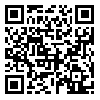Volume 16, Issue 4 (Winter 2022)
Salmand: Iranian Journal of Ageing 2022, 16(4): 530-549 |
Back to browse issues page
Download citation:
BibTeX | RIS | EndNote | Medlars | ProCite | Reference Manager | RefWorks
Send citation to:



BibTeX | RIS | EndNote | Medlars | ProCite | Reference Manager | RefWorks
Send citation to:
Talimkhani A, Abdollahi I, Mohseni-Bandpei M A, Mazdeh M, Rezaei B. Evaluation of the Effects and Complications of Transcranial Direct Current Stimulation (tDCS) on Motor Learning Process in Chronic Unilateral Stroke Patients. Salmand: Iranian Journal of Ageing 2022; 16 (4) :530-549
URL: http://salmandj.uswr.ac.ir/article-1-2011-en.html
URL: http://salmandj.uswr.ac.ir/article-1-2011-en.html
Ailin Talimkhani1 

 , Iraj Abdollahi *2
, Iraj Abdollahi *2 

 , Mohammad Ali Mohseni-Bandpei3
, Mohammad Ali Mohseni-Bandpei3 

 , Mehrdokht Mazdeh4
, Mehrdokht Mazdeh4 

 , Bahareh Rezaei5
, Bahareh Rezaei5 




 , Iraj Abdollahi *2
, Iraj Abdollahi *2 

 , Mohammad Ali Mohseni-Bandpei3
, Mohammad Ali Mohseni-Bandpei3 

 , Mehrdokht Mazdeh4
, Mehrdokht Mazdeh4 

 , Bahareh Rezaei5
, Bahareh Rezaei5 


1- Department of Physical Therapy, School of Rehabilitation Sciences, Hamadan University of Medical Sciences, Hamadan, Iran.
2- Department of Physical Therapy, University of Rehabilitation Sciences and Social Health, Tehran, Iran. ,irajabdollahi@hotmail.com
3- Department of Physical Therapy, Pediatric Neurorehabilitation Research Center, University of Rehabilitation Sciences and Social Health, Tehran, Iran.
4- Department of Neuroogy, School of Medicine, Hamadan University of Medical Sciences, Hamadan, Iran.
5- Department of Speech Therapy, School of Rehabilitation, Hamadan University of Medical Sciences, Hamadan, Iran.
2- Department of Physical Therapy, University of Rehabilitation Sciences and Social Health, Tehran, Iran. ,
3- Department of Physical Therapy, Pediatric Neurorehabilitation Research Center, University of Rehabilitation Sciences and Social Health, Tehran, Iran.
4- Department of Neuroogy, School of Medicine, Hamadan University of Medical Sciences, Hamadan, Iran.
5- Department of Speech Therapy, School of Rehabilitation, Hamadan University of Medical Sciences, Hamadan, Iran.
Abstract: (6367 Views)
Objectives: It seems that psycho-physical factors of stroke patients undergoing Transcranial direct current stimulation (tDCS) treatment can affect implicit motor learning process in patient with stroke. The aim of this study was to determine the effects and adverse effects of tDCS on motor learning process in chronic unilateral stroke patients.
Methods & Materials: This crossover, sham-controlled, randomized, blinded study was conducted in 2020 on 12 patients with chronic unilateral stroke (Mean±SD age, 60.33±1.87 years), (The Mean±SD time elapsed since the onset of the disease, 1.96±1.36 years) referred to Mobasher Kashani clinic in Hamadan, Iran who were selected using a convenience sampling technique. Patients were randomly divided in to 2 groups: experimental (dual tDCS+SRTT) (n=6) and sham (sham tDCS+SRTT) (n=6) groups. After 3 weeks of washing out period, patients in each group were treated in other brain stimulation group again. Data were collected using the record of reaction time and error of sequenced blocks by related software. Also, adverse effects of tDCS, pain or discomfort, attention and fatigue of patients were assessed by visual analogue scale (VAS) questionnaire. The data were analyzed using linear mixed effects.
Results: Data analysis showed a considerable improvement in implicit motor learning in both brain stimulation groups. The most reported sensations were itching and tingling, which continued during all stimulation sessions. The pain or discomfort of the patients was negligible during the intervention sessions. Moreover, the type of brain stimulation, the time and their interaction had no significant effect on the fatigue, attention and pain of the patients (P>0.05).
Conclusion: Dual-tDCS technique does not cause serious adverse effects in patients with stroke. It can be used as an effective and useful therapeutic strategy for increase in implicit motor learning in chronic stroke patients.
Methods & Materials: This crossover, sham-controlled, randomized, blinded study was conducted in 2020 on 12 patients with chronic unilateral stroke (Mean±SD age, 60.33±1.87 years), (The Mean±SD time elapsed since the onset of the disease, 1.96±1.36 years) referred to Mobasher Kashani clinic in Hamadan, Iran who were selected using a convenience sampling technique. Patients were randomly divided in to 2 groups: experimental (dual tDCS+SRTT) (n=6) and sham (sham tDCS+SRTT) (n=6) groups. After 3 weeks of washing out period, patients in each group were treated in other brain stimulation group again. Data were collected using the record of reaction time and error of sequenced blocks by related software. Also, adverse effects of tDCS, pain or discomfort, attention and fatigue of patients were assessed by visual analogue scale (VAS) questionnaire. The data were analyzed using linear mixed effects.
Results: Data analysis showed a considerable improvement in implicit motor learning in both brain stimulation groups. The most reported sensations were itching and tingling, which continued during all stimulation sessions. The pain or discomfort of the patients was negligible during the intervention sessions. Moreover, the type of brain stimulation, the time and their interaction had no significant effect on the fatigue, attention and pain of the patients (P>0.05).
Conclusion: Dual-tDCS technique does not cause serious adverse effects in patients with stroke. It can be used as an effective and useful therapeutic strategy for increase in implicit motor learning in chronic stroke patients.
Type of Study: Research |
Subject:
Physiotherapy
Received: 2020/04/06 | Accepted: 2020/09/23 | Published: 2022/01/01
Received: 2020/04/06 | Accepted: 2020/09/23 | Published: 2022/01/01
Send email to the article author
| Rights and permissions | |
 |
This work is licensed under a Creative Commons Attribution-NonCommercial 4.0 International License. |





